You are here
New Releases
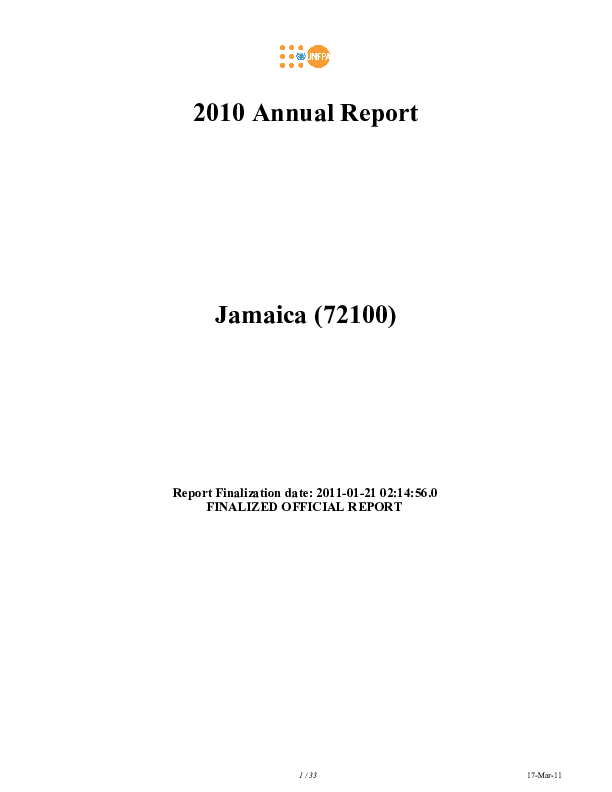
2010 Country Office Annual Report
Strategic Plan 2008-2013 Development Results Framework
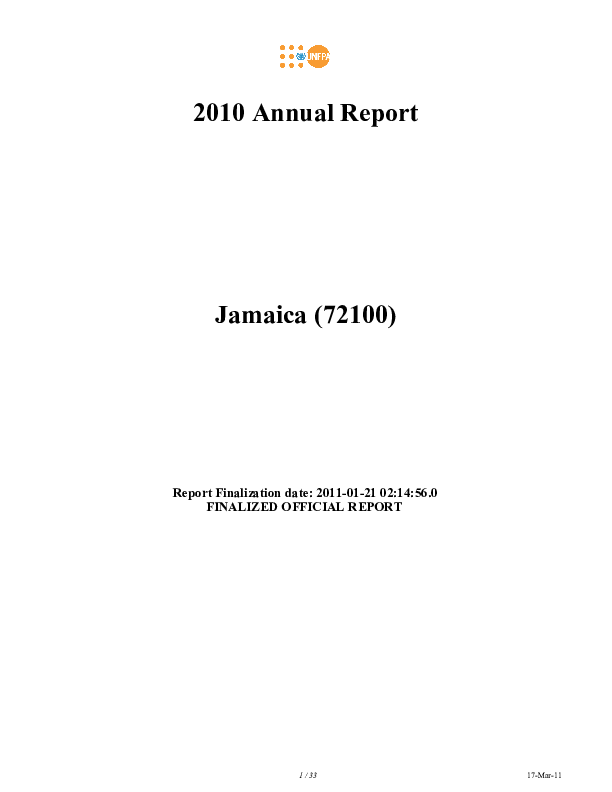
2010 Country Office Annual Report
Outcome 1.1: Population dynamics and its inter-linkages with gender equality, sexual and reproductive health and HIV/AIDS incorporated in public policies, poverty reduction plans and expenditure frameworks
Indicator 1: Proportion of national development plans/policies (NDPs), including poverty reduction strategies (PRSs) that incorporate population dynamics, reproductive health, including HIV/AIDS and gender equality
Indicator 2: Resource mobilized for population activities
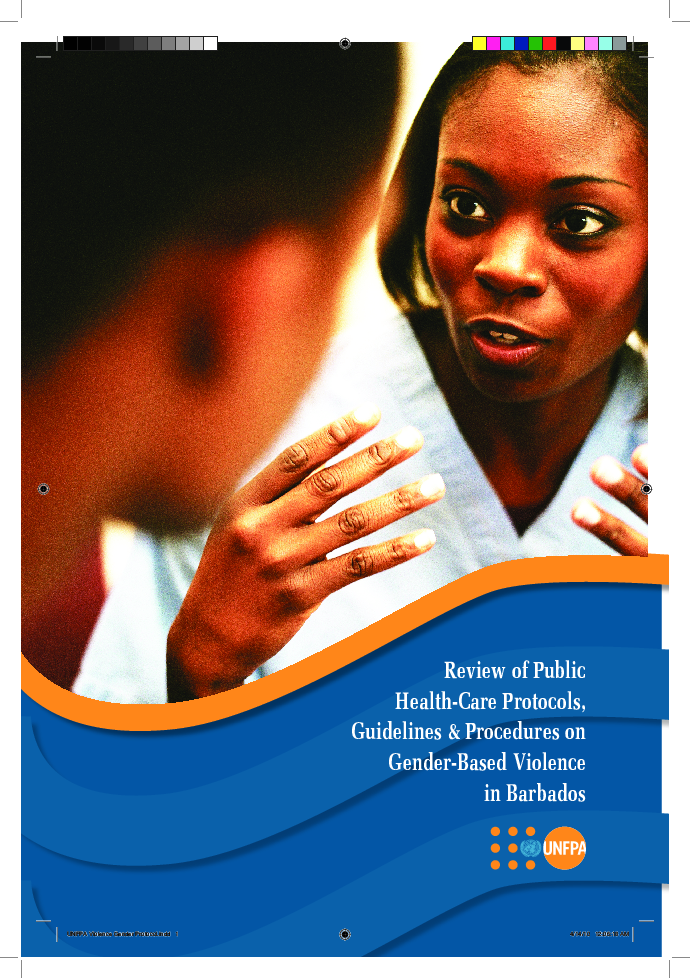
Report on the Review of Public Health Care Protocols on GBV in Barbados
Gender-based violence is an umbrella term for any harmful act perpetrated on the basis of socially constructed gender roles.
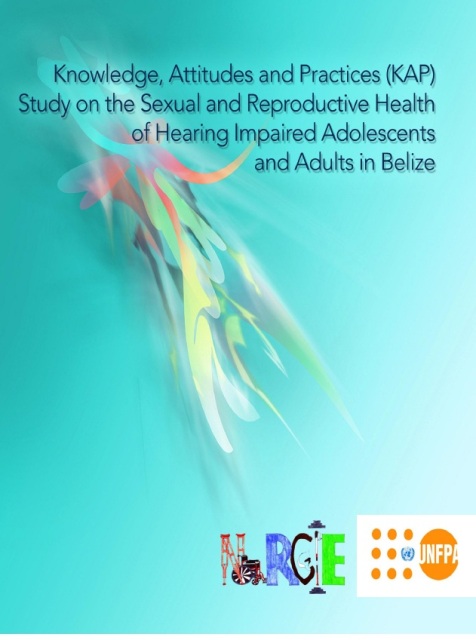
Knowledge, Attitudes and Practices (KAP) Study on the Sexual and Reproductive Health Of Hearing Impaired Adolescents And Adults in Belize
The findings of this report were intended to generate baseline data, identify gaps and make recommendations. To this end, a Knowledge, Attitudes and Practices (KAP) survey was carried out among hearing impaired adolescents and adult population in May and June of 2010.
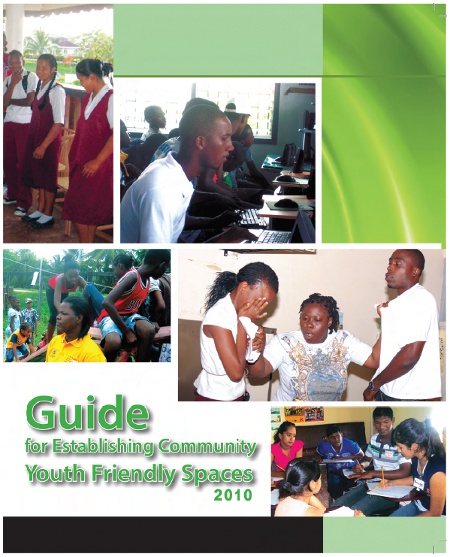
Guide for Establishing Youth Friendly Spaces
Youths under 25 years make up almost 50 percent of the population in Guyana. According to the 2002 Population and Housing Census, adolescents aged 10–14 years accounted for 10.8 percent while the 15– 19 year-olds accounted for 8.9 percent of the population
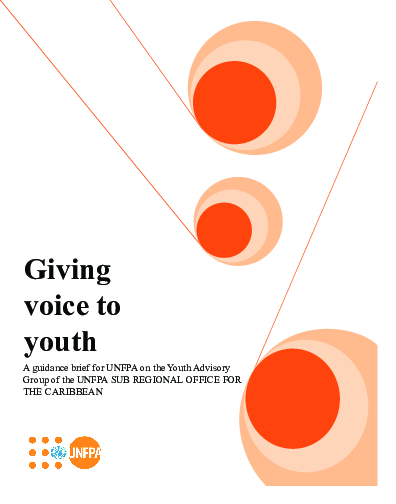
Giving Voice to Youth
While this generation of young people face many challenges and risks that impact directly on their physical, emotional and mental health and well-being there are enormous opportunities and benefits that could accrue to the Region by investing in young people.
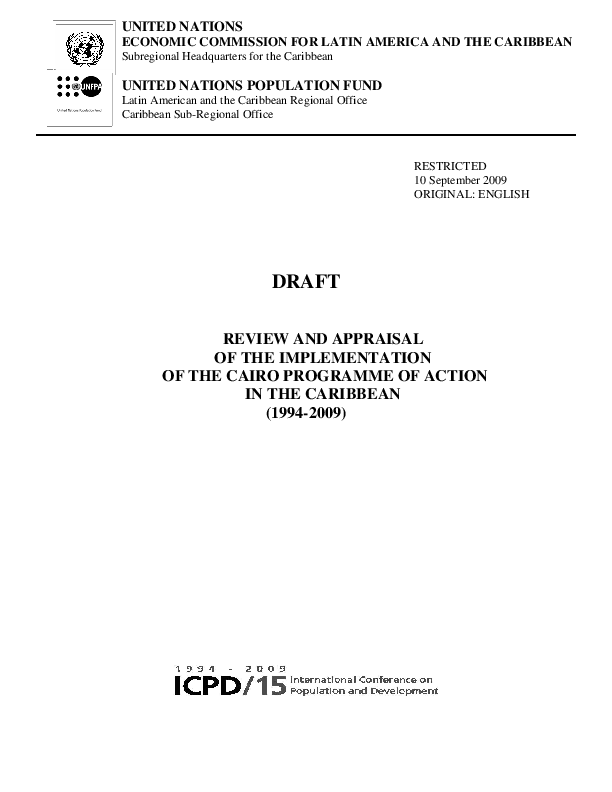
International Conference on Population and Development (ICPD) at 15
At the International Conference on Population on Development (ICPD) held in 1994 in Cairo, Egypt, industrialized and developing countries alike forged an inspiring and farsighted plan that integrated a wide range of population, development and human rights issues into a blueprint for 20 years of action. Concrete goals of the ICPD centered on providing universal education; reducing infant, child and maternal mortality; and ensuring universal access by 2015 to reproductive health care, including family planning, assisted childbirth and prevention of sexually transmitted infections including HIV and AIDS. This year (2009) marks the 15th anniversaryof the ICPD and reminds us of the five years remaining to fulfill the commitments made in Cairo.
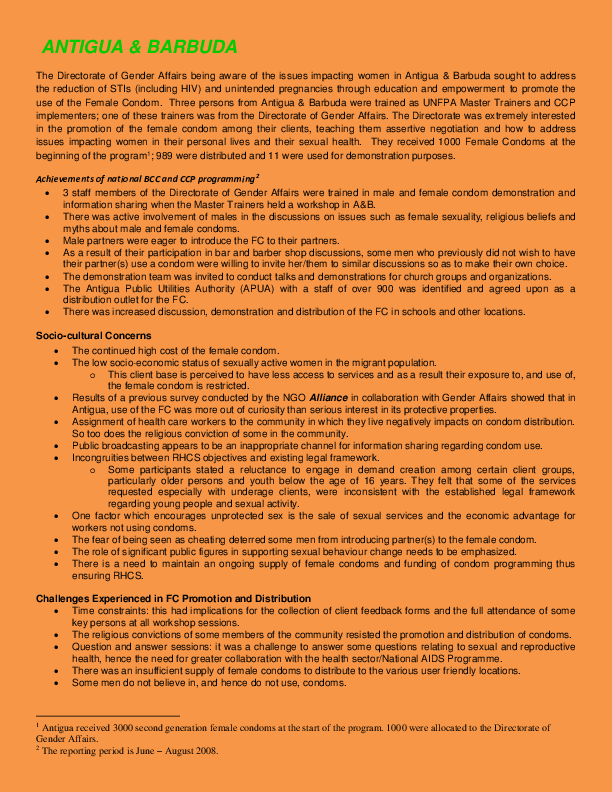
Case Study on Female Condom Promotion in Antigua
The Directorate of Gender Affairs being aware of the issues impacting women in Antigua & Barbuda sought to address the reduction of STIs (including HIV) and unintended pregnancies through education and empowerment to promote the use of the Female Condom.
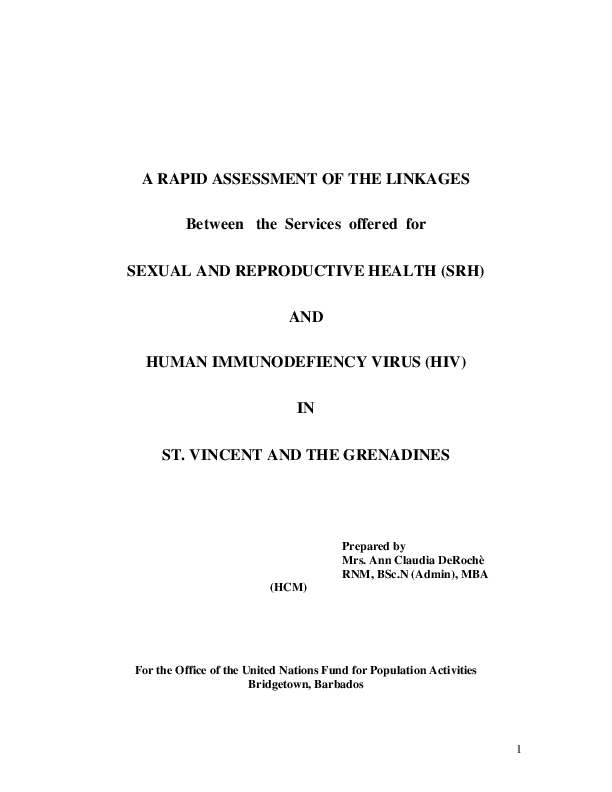
SRH HIV Linkages Assessment for St Vincent
St. Vincent and the Grenadines has made remarkable achievement in health care over the past twenty years. Since the declaration of Health for all by the year 2000, at Alma Ata in 1978 the health indicators have shown significant improvement. The natural growth rate of the population has fallen over this period from 2.8 to 2.4, the total fertility rate is 2.4 and the population grows at a rate of 0.13% per annum with a dependency ratio of 61%. Life expectancy at birth has been estimated at 72 years and infant mortality rate is 16.3 percent per 1000 live births.

SRH HIV Linkages Assessment Report St Kitts Nevis
The interactions between HIV/AIDS and SRH are acknowledged at varying levels. Their commonalities include similar root causes, transmission and management techniques. Therefore linkages between core HIV and SRH services have been shown not only to be economically feasible, but also associated with numerous public health benefits. Recommendations are therefore postulated for each health level: policy, systems and service provider levels.